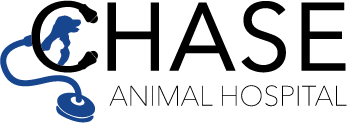Pet Health Articles
-
Fludrocortisone acetate is given by mouth and is used off label to treat hypoadrenocorticism (Addison’s disease) and hyperkalemia. Give as directed by your veterinarian. Side effects are uncommon but may include vomiting. Do not use in pets that are allergic to it or in lactating pets without using a milk replacer. If a negative reaction occurs, please call your veterinary office.
-
Fluocinolone + acetonide DMSO (brand name Synotic®) is applied topically and is labeled to treat ear inflammation in dogs. It is also used off-label to treat ear infections in cats. Give as directed. Side effects are rare but may include temporary hearing loss or skin reactions. Do not use on pets allergic to corticosteroids or DMSO, on pets with a ruptured ear drum or pets that are pregnant.
-
Fluoroquinolone topical formulations are used to treat bacterial infections. They are used off label to treat external ear infections by topically applying the medication directly to the ear canal. Side effects may include increased redness or inflammation and should be discontinued and call your veterinarian if this occurs.
-
Fluoxetine is given by mouth and is used on and off label to treat various behavioral conditions. Common side effects include sleepiness and decreased appetite. If a negative reaction occurs, call your veterinary office.
-
Fluralaner is given by mouth or applied topically and is used to treat flea and tick infestations, and also off-label to treat certain types of mange and mites. Give as directed. Side effects are uncommon but may include stomach upset or neurologic symptoms. Do not use in pets with a history of seizures. If a negative reaction occurs, please call the veterinary office.
-
Flurbiprofen is applied topically to the eye to treat pain and inflammation of the eye. Its use in dogs is off label. Do not use this medication in pets that are allergic to it. If a negative reaction occurs, call your veterinary office.
-
Fluticasone propionate (Flovent) is commonly used off label to treat asthma and other chronic tracheobronchial diseases. It is administered as an inhaled medication via an aerosol canister and a delivery device. Side effects are uncommon but include upper airway irritation or infection. This medication should not be used during an acute bronchospasm.
-
Successful airline travel with a dog begins long before the day of travel. Do your homework with the airlines. Acquire your dog's travel carrier well before your trip. Schedule a visit with your veterinarian close to the date of travel. Consult your veterinarian to create the best travel plan for your dog if he does not travel well. With some advance planning, attention to detail, and consultation with your veterinarian, flying with your dog can be a great experience.
-
A focal seizure refers to an abnormal electrical activity surge confined to a specific area of the brain. Fly-biting seizures are a type of focal seizure in which a dog snaps at the air like she is biting at invisible flies. Although the only way to definitively determine that fly-biting and other suspected focal seizures are caused by seizure activity is through an electroencephalogram (EEG), this test is often impractical due to the unpredictable nature of the seizures. The same anti-epileptic medications used for generalized seizures are typically used in managing focal seizures.
-
Folic acid is given by mouth or injection and is used to treat folic acid deficiencies due to intestinal or pancreatic disease, or due to the use of certain medications. Give as directed by your veterinarian. Side effects are not common but may include stomach upset. Do not use in pets with a known sensitivity. If a negative reaction occurs, please call your veterinary office.

